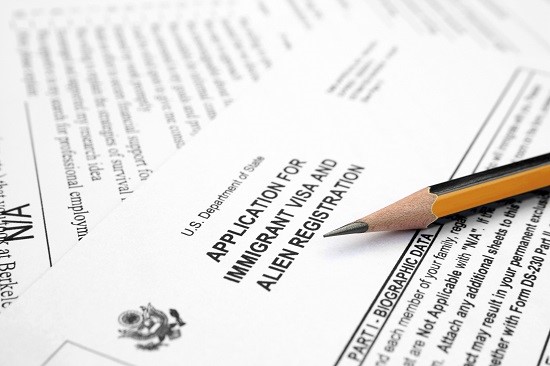The Laken Riley Act became law on January 29, 2025. This changes the immigration law allowing for detention of non-citizens who are charged with or commit burglary, theft, larceny, shoplifting, assault on a law enforcement officer or any other crime that results in death or serious bodily injury to another person.
Category Archives: Immigration Reform News
New Effort at Bi-partisan Immigration Reform
Today, May 23, 2023, a Florida Republican, Maria Elvira Salazar, and a Texas Democrat, Veronica Escobar, are introducing legislation in Congress addressing immigration concerns of both Democrats and Republicans. The proposal includes increased border security, protection for Dreamers, green card backlogs, revised agricultural visas, more border patrol and asylum officers, asylum processing centers on the border and in countries south of the border.
Stay tuned for more news.
Initial DACA Applications Now Accepted as of December 7, 2020
On December 4, 2020, a Federal Judge required the Department of Homeland Security (DHS) to begin accepting new applications for Deferred Action for Childhood Arrivals (DACA), as well as remedying the recent one-year grants of DACA. Effective December 7, 2020, U.S. Citizenship and Immigration Services (USCIS) is:
• Accepting first-time applications for consideration of DACA;
• Accepting DACA renewal requests based on the terms of the DACA policy in effect prior to September 5, 2017;
• Accepting applications for advance parole documents based on the terms of the DACA policy prior to September 5, 2017; and
• Extending one-year grants of deferred action and employment authorization under DACA to two years.
For more information to see if you are eligible to apply for DACA, see Deferred Action, or contact our office for a consultation, 610-436-7555.
Department of Homeland Security (DHS) proposes changes to expand the provisional stateside waiver process
Today the Department of Homeland Security (DHS) published a proposed rule change in the Federal Register to streamline and expand the provisional stateside waiver process. This is part of a multi-step immigration process for eligible individuals to become permanent residents of the United States.
The current provisional waiver process is only available to intending immigrants, now living in the United States, with a six month or longer period of unlawful presence in the US, who have spouses or parents that are United States citizens. Until three years ago, all intending immigrants had to have an interview in their own country first before applying for waivers based on prior violations of the immigration laws. This caused very long delays and lengthy separations from family members in the United States while the intending immigrant waited outside the US. The change three years ago allowed some eligible people to file a waiver only for the unlawful presence provisions prior to departing from the United States for consular processing rather than applying for a waiver abroad after the immigrant visa interview. That change enabled a more streamlined and family friendly process – thus significantly shortening the period of separation while completing the process to becoming a resident of the United States.
DHS now proposes to expand the current provisional waiver process in two ways.
First, DHS will eliminate current limitations on the provisional waiver process that restrict eligibility to certain immediate relatives of U.S. citizens. With the proposed changes, the provisional waiver process will be made available to family-sponsored immigrants, employment-based immigrants, certain special immigrants, and Diversity Visa program selectees, together with their derivative spouses and children.
Second, DHS proposes to expand the provisional waiver process by eliminating the current restriction that limits “extreme hardship” to U.S. citizen spouses or parents. Under this proposed rule, an applicant for a provisional waiver would be permitted to establish the eligibility requirement of showing extreme hardship to lawful permanent resident spouses or parents as well.
For further details on this proposed rule change go to: http://www.gpo.gov/fdsys/pkg/FR-2015-07-22/html/2015-17794.htm
Murphy Law Firm will publish more information such as the date the changes will take effect as soon as the details are announced.


